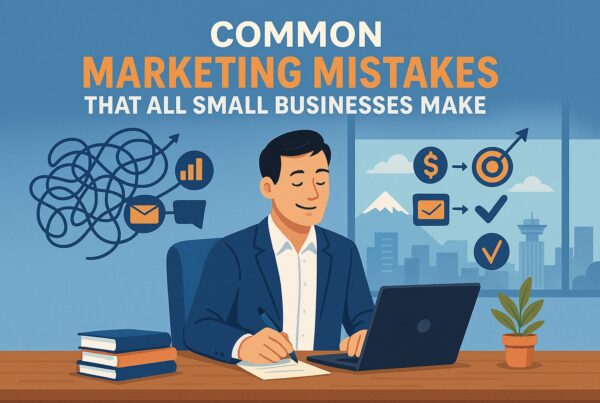The Risks of Social Proof: Protecting Consumers From Manipulation
What is Social Proof?
Social proof is a powerful psychological phenomenon in which people tend to conform to the actions and views of those around them. It has been used successfully by marketers to influence consumer behaviour, but it can also be dangerous if abused or used improperly. In marketing, social proof creates trust between buyers and sellers and encourages consumers to purchase certain products or services. This can be done through professional endorsements, testimonies from previous customers, media coverage of popular products or services, influencer marketing and celebrity endorsements.

While social proof can be an effective tool for marketers, it can also be used to manipulate consumers into making decisions that are not in their best interests. For example, some companies may exaggerate the positive reviews of their products or services and use false claims to create a sense of urgency among the target audience or potential customers. This manipulation can lead to consumers being misled into purchases they may regret later.
Governments and regulators must protect consumers from manipulation through any form of social proof by requiring companies to provide accurate, transparent information about their products and services. Consumers should also be aware of the risks associated with relying on social proof when making decisions and research any claims made by companies before making them.
The marketing world has caught onto this trend, using social influence and our desire to be accepted to convince us to buy their products or services. They use social media influencers and proof to create an illusion of popularity that tempts us to purchase something we may not need. We have to be aware of this tactic and understand that it is only sometimes an accurate representation. We need to put in the effort to research a product or service before we take the plunge and buy it; otherwise, we could end up paying for something far more expensive than necessary.
Don’t Be Fooled by Social Media Hype: The Risk of Believing Promises Without Putting in the Work
It’s amazing how, in today’s society, we double down on promising results – usually seen on all types of social proof and social media platforms – before we truly put the work in. We make a decision, and if we say it often enough with enough passion and belief, then we think it will become true. Unfortunately, this can lead us to make risky and unwise decisions.
A Fairy Tale’s Lesson

This idea was depicted in Hans Christian Anderson’s beloved tale ‘The Emperor’s New Clothes.’ This fairytale tells the story of an emperor who loves nothing more than showing off his new clothes. His tailors promise that they have made him a luxurious set of clothes that only wise people can see; unfortunately for the emperor, he is fooled into believing these claims as nobody wants to admit they can’t see them due to fear of contradicting him.
When the emperor decides he needs to show off his ‘magnificent clothes’ to the general public, a young boy notices he is stark naked and blurts out about it. The story’s moral implies that if someone speaks confidently about something and makes strong assertions, many people will be too scared or unwilling to question it out of fear or respect.
Away From the Fantasy
In essence, this kind of behaviour can be seen happening all around us today; it’s human nature that when someone speaks with absolute certainty (and particularly when they also act with confidence), most people don’t want to speak up against them out of respect or just plain lack of courage. So instead, people assume they agree with what is being said and double down on its plausibility even when deep down they know otherwise.

This situation happens in politics, business relationships, investing strategies, social psychology and online forums such as social media platforms or networking sites – all because individuals feel intimidated by those who take a lead role or are highly successful in their fields or professions. In truth, honest collaboration always achieves greater success rather than simply “following the crowd.”
Many online and offline businesses have found themselves in deep water due to relying too heavily on the promise of great results but double-downing on it without taking the necessary steps. A simple example of this can be seen in multi-level marketing (MLM) schemes that promise quick and easy financial success to a potential customer with little effort and no risk.
These schemes often rely on customer testimonials from customers who are ‘touting’ the product or service to encourage others into the scheme. And frequently, people sign up, believing that if enough other people are achieving something, they must be able to do the same with minimal effort. But unfortunately for many, outcomes like these are rarely achieved for real customers, mainly due to little more knowledge and a lack of due diligence in understanding how things work.
Other examples include reviews for products or services and online e-commerce review sites that may give an overly optimistic opinion of the item – designed to entice more sales – without properly considering any potential pitfalls or drawbacks. This type of “double-downing” on promises has caused numerous businesses to fail due to a lack of research and misguidance on what constitutes a viable investment opportunity.
Overall, it is best for those looking for success not just to focus solely on the promise of potential gains but also to put in the work researching all options available before making any decisions– including being open-minded enough to hear criticism or opposition viewpoints so that true understanding can be reached. History has taught us time and time again that it’s only when we employ honest assessment alongside enthusiasm and passion that we stand the greatest chance at achieving our dreams – both in life and business alike!
Pernicious Practices That You Should Be Alert To
As expressed, social proof is a powerful tool for small business owners when used correctly. It can influence potential customers by providing social proof of the quality of its products or services.
However, it can also be dangerous when used manipulatively, as it can lead to false customer expectations and have damaging consequences for both parties involved. Businesses and their customers should be aware of the potential risks of using social proof and take steps to prevent misuse or manipulation.
Examples of its misuse include soliciting reviews and testimonials when belonging to a networking group, Facebook group and even LinkedIn endorsements. I have benefitted from this, though from a place of integrity, I admit to being very uncomfortable with these. Why? Quite simply, a small number of these historical reviews were from people who never experienced my services!
Some networking groups actively encourage you to promote another’s business to demonstrate your value to the group, ensuring that you retain your ‘seat’ to benefit from the transactions within the group. This practice, among others, has always felt akin to Multiple Level Marketing schemes (MLM).

MLMs are another environment where the social proof of ‘success’ is promoted to entice more prospective recruits to sell the product or service. Tragically, I have met many who have spent many hours investing in the promise and inventory only to experience the ‘high life’ vicariously through another’s aspirational ‘evidence’ of their success.
Then there are the performance and success gurus, providing motivational content packaged into a tiered product or service, inviting you to participate at a deeper level so that you can join the elite circle that followed the guru’s prescription.
I speak from personal experience in these areas, but for the MLMs, as I just stated, I have coached and supported those who were enrolled or trapped in these schemes.
Between 1999 and 2021, I was involved in the networking organizations mentioned above. I was thanked for outrageous sums of business, so on the face of it, an extremely successful member. Yet, while the acknowledgments were real, I could look behind the curtain of the business I passed and would question the quality of the businesses I referred work to. Of course, there are exceptions, some of which I have maintained a relationship and business with since 1999.
Then there are the gurus and industry experts that I have spent time with and participated at the top table. Yet I have always wondered why when tens of thousands and probably many more have participated and made commitments to change their life and business, so few after each event have become the success on offer?

Emotion vs Logic
Social Proof is so powerful because it appeals to the emotion within us. We are influenced and controlled by it, so when we see what appears to be evidence of success – whether real or perceived – often, it is easier for us to leap into the unknown rather than go through a process of logical assessment.
The stimulated emotions fire off endorphins that are hard to resist and this resistance is reduced by the evidence of others who have achieved or acquired what we want. Then despite the outcome, we double down on the original decision, something psychologists call cognitive dissonance, leading us to miss the truth before our own eyes.
As an entrepreneur and small business owner, you should use social proof ethically and with integrity. Business relationships’ long-term benefits are much more valuable than any short-term gains from misusing or manipulating the power of social proof.
Ensure that your company’s reputation is protected by always considering the ethical implications of any actions taken before making a decision. Make sure to monitor how others may use your reputation to their advantage. Making sure that you protect your brand’s popularity and identity is paramount for a successful business.
Conclusion
As a mentor and coach, if I conduct business from a place of honesty and openness, then the risk of misusing social proof by all parties lessens.

When pursuing this form, be mindful of any use of social proof that you embrace transparency in your processes. Reflect on why it has been used and if it was necessary in the first place.
Finally, and from Hans Christian Anderson’s own words, let us heed a great example: “But he hasn’t got anything on,” said a little child at last… Shouldn’t one give children credit for telling the truth?” And so Anderson’s message still holds true today – no matter our age, we should never lose sight of our integrity nor succumb to peer pressure when looking for positive outcomes, whatever our endeavour may be; only collaborative honesty can drive us forward.



